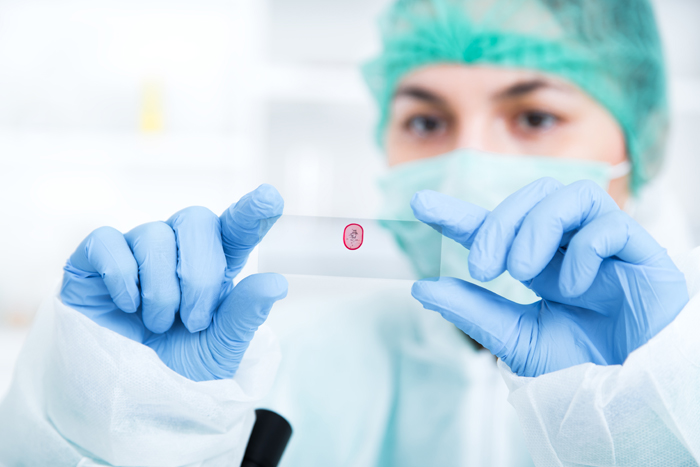Biopsy Treatment & Diagnostics in Chunni Ganj, Kanpur
Biopsy
A biopsy is a procedure carried out at Apollo Spectra, Kanpur, to analyze and examine for the presence of any disease or disorder. This involves removing a sample of tissue and observing it under the microscope.
Biopsies are done to confirm the condition or disease if you are experiencing any signs or symptoms, or your doctor has targeted the area of concern.
The procedure is carried out to check for the presence of abnormal tissues, such as a lesion, a tumor, or a mass.

What Are the Types of Biopsies?
Depending on the location of the tumor or abnormal growth, these are the types of biopsies performed at Apollo Spectra, Kanpur:
- Bone Marrow Biopsy: The surgeon inserts a large needle on the back of your hip bone to collect the sample of the bone marrow. This procedure is carried out to detect blood disorders such as leukemia or lymphoma.
- Needle Biopsy: The doctor sticks a needle in the area of concern to draw out the sample tissue. This is the most common procedure. This is done when the doctor can feel the lumps on your skin such as lymph nodes or breast lumps.
- Skin Biopsy: This procedure is carried out with a circular blade that removes the sample of tissue from the surface of the body. It helps detect skin conditions such as melanoma.
- Surgical Biopsy: The surgeon makes small incisions on the affected area to either remove the lumps or completely remove the abnormal growth in the tissues that are hard to reach.
- CT-guided biopsy: While the person lays on the CT-scanner, the images help the doctors to determine the position of the needle in the targeted tissue
- Ultrasound-guided Biopsy: An ultrasound scanner helps the doctor to direct the position of the needle in the lesions.
- Endoscopic Biopsy: This procedure is done with a thin tube with a light attached to a camera called an endoscope. Doctors use this tool to view inside the body, including the bladder, abdomen, joints, or gastrointestinal tract. They insert endoscopes through the mouth or a tiny surgical incision. Doctors also use them to take tiny samples of the tissue using forceps.
- Liver Biopsy: The needle is inserted through the stomach reaching the liver and collecting the sample tissue.
- Kidney Biopsy: This procedure is similar to liver biopsy except the target is the kidney.
What Is the Procedure for Biopsy?
The preparation of the biopsy depends on the severity of the procedure. Depending on the type of biopsy, your doctor may tell you to either lay on your stomach or back or sit still. In some biopsies, you are required to hold your breath while the needle is inserted.
The doctor may give you anesthesia depending on the type of biopsy. A minimally invasive biopsy is done for needle biopsies. The tissue is removed after numbing the area so that it does not hurt.
After the tissue sample is achieved, it is sent to a laboratory for further analysis and results. The result report will determine whether the cell growth is cancerous. If there is an abnormal growth of tissue it also helps the doctor to determine the type and stage of cancer.
What Are the Advantages of Biopsy?
Benefits of biopsy include:
- Reliable procedure to determine whether the cancer growth is benign or malignant
- Needle biopsies are less invasive
- Less recovery time
- Patients can resume their everyday activities
- Accurate results
- Safe procedure with reduced risk
What Are the Side Effects of Biopsy?
Side effects of biopsy include:
- Accidental injury to adjacent tissues or structures
- Infection
- Bleeding
- Severe pain
- Swelling in the area of needle insertion
Request an appointment at Apollo Spectra Hospitals, Kanpur
Call1860-500-2244 to book an appointment
The amount of tissue obtained from a needle biopsy may not be sufficient and the biopsy may have to be repeated. Less invasive breast biopsy procedures may be unable to detect some lesions or determine the extent of disease present.
After the tissue is collected, it is sent to a laboratory for analysis. A pathologist will examine the biopsy tissue under a microscope. A full report from the pathologist will be sent to your doctor in a few days
In a needle biopsy, you will feel a small sharp pinch at the site of the biopsy. In an open or closed biopsy that requires surgery, you will be given anesthesia to help with the pain.
Our Top Specialities
NOTICE BOARD
CONTACT US
CONTACT US
 Book Appointment
Book Appointment


.svg)
.svg)
.svg)
.svg)








